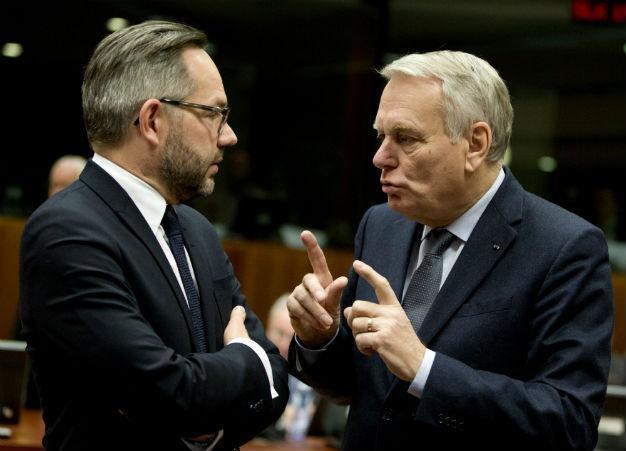Germany urges Turkey to focus on integrating Syrian refugees
Emine Kart - ANKARA

AP photo
As Turkish and EU leaders discuss a joint action plan agreement to deal with the migrant crisis, with the former asking the latter to share the burden, a German government official has underlined the need for Turkey to better integrate Syrian refugees, comparing the situation to Germany’s experience dealing with “Gastarbeiter,” or guest workers, in the post-war period.
“I would like to say a few words on our experience with integration in Germany first. It took us quite a while to realize that we are a country of immigration. Migrants, particularly from Turkey, were perceived as “guest workers” who would leave the country after a while. Some did; the vast majority, however, stayed in Germany,” Michael Roth, Germany’s minister of state for Europe at the country’s federal foreign office, said when asked about Germany’s proposal to Turkey for a sustainable refugee policy and whether the consequences of Syrians’ obtaining Turkish citizenship and thus gaining access to the EU as Turkish citizens were reviewed by EU and German officials as an option.
Roth provided written answers to questions from Hürriyet Daily News on March 18, ahead of his visit to Turkey scheduled to take place on March 22.
“[The] integration of migrants only later became a major topic in German politics. We learned from that – we had missed chances. That is why I would warmly recommend to our Turkish friends that they put integration on the political agenda earlier than Germany did, and I welcome the initial signs that indicate this is happening. Thinking about the current situation, there are so many Germans of Turkish descent helping and supporting refugees who come to seek shelter in Germany. It is so good to be able to count on them, and they are an integral part of our civil society,” Roth said.
“Thus, we are probably not a model in every sense, but we can share our experience of doing a better job of integrating refugees today. I think enhanced cooperation on integration can become a successful Turkish-German endeavor,” he added.
In the decades after World War II, then-West Germany encouraged immigration as a way of dealing with labor shortages, but it described those who came from countries like Turkey, Italy and Greece as “Gastarbeiter,” as if they would return to their home countries once the work was done.
Last September, German Chancellor Angela Merkel said Germany needed to learn from its mistakes in dealing with “Gastarbeiter” in the post-war period and integrate refugees and asylum seekers from the moment they arrive in the country.
“Many of them will become new citizens of our country. We should learn from the experiences of the 1960’s, when we asked Gastarbeiter to come to us, and make integration the top priority from the start,” Merkel told the German parliament at the time.
‘In a nutshell’
Roth, meanwhile, acknowledged Turkish citizens’ probable “exhaustion” in dealing with the EU Schengen visa application procedure.
“I am fully aware that a lot of Turks are tired of applying for a visa to travel to the EU,” Roth responded, when asked whether he believed Turkey’s demand to have a condition of visa-free travel for its citizens as part of the action plan with the EU to be fulfilled by the end of June was “feasible.”
“In 2013, Turkey accepted a visa roadmap according to which Turkey has to fulfill 72 challenging criteria related to document safety, border management and more. This is a very transparent exercise; all the criteria have to be fully met before the EU can decide about granting Turkish citizens visa-free travel to the EU. At the EU summit on March 7, EU leaders agreed with Turkey that the visa requirement could already be abolished by the end of June – if all of the criteria are met. In a nutshell, it is in the hands of the Turkish government to get this challenging list of necessary reforms on track,” Roth said.
“In the end, EU member states and the European parliament will reach their decision on the basis of the facts. Personally speaking, I would be very happy if visa-free travel could bring European and Turkish societies even closer to one another,” he added.
